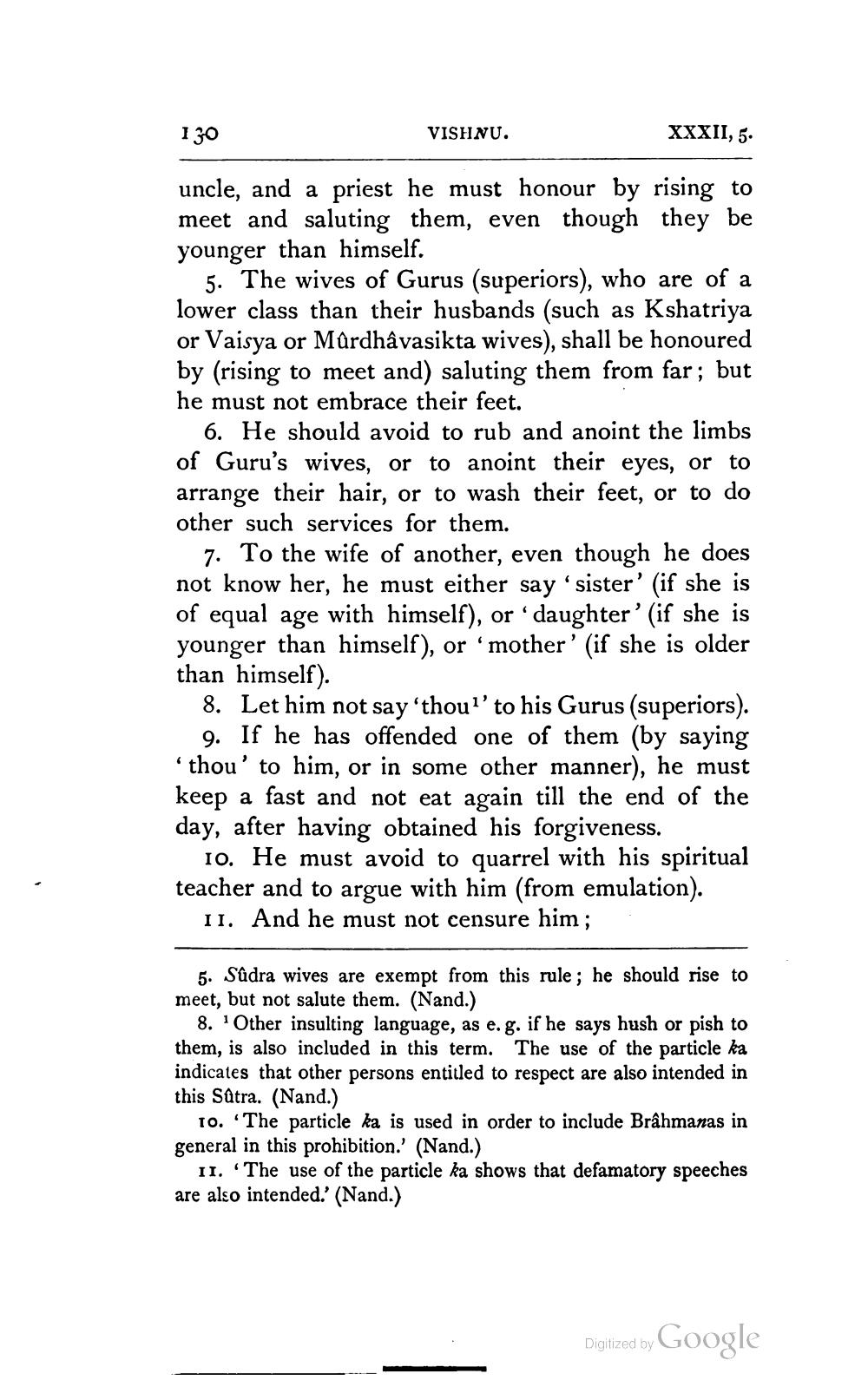________________
130
VISHNU.
XXXII, 5.
uncle, and a priest he must honour by rising to meet and saluting them, even though they be younger than himself.
5. The wives of Gurus (superiors), who are of a lower class than their husbands (such as Kshatriya or Vaisya or Mûrdhâvasikta wives), shall be honoured by (rising to meet and) saluting them from far; but he must not embrace their feet.
6. He should avoid to rub and anoint the limbs of Guru's wives, or to anoint their eyes, or to arrange their hair, or to wash their feet, or to do other such services for them.
7. To the wife of another, even though he does not know her, he must either say sister' (if she is of equal age with himself), or daughter'(if she is younger than himself), or “mother' (if she is older than himself).
8. Let him not say 'thoul'to his Gurus (superiors).
9. If he has offended one of them (by saying thou' to him, or in some other manner), he must keep a fast and not eat again till the end of the day, after having obtained his forgiveness.
10. He must avoid to quarrel with his spiritual teacher and to argue with him (from emulation).
11. And he must not censure him; .
5. Sûdra wives are exempt from this rule; he should rise to meet, but not salute them. (Nand.)
8. Other insulting language, as e. g. if he says hush or pish to them, is also included in this term. The use of the particle ka indicates that other persons entitled to respect are also intended in this Sutra. (Nand.)
10. The particle ka is used in order to include Brahmanas in general in this prohibition.' (Nand.)
11. The use of the particle ka shows that defamatory speeches are also intended.' (Nand.)
Digitized by Google




